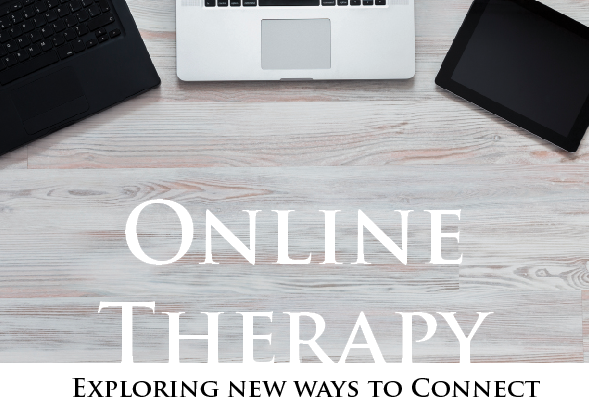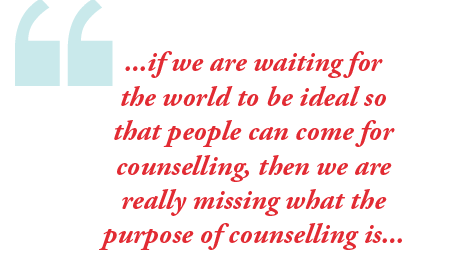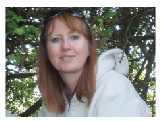Online Therapy – Exploring new ways to connect

As a society, we seem to be gaining ground when it comes to talking about mental health. For many, taking the step to help ourselves through counselling and therapy is no longer an issue. A recent survey by the BACP in the UK showed that 90% of people found it acceptable to have counselling and psychotherapy for issues like anxiety and depression. With a new generation of therapy-accepting millennials on the rise, is online therapy the next logical step?
Donijka Monk and Mary McHugh, both graduates of the Castlebar Counselling Therapy Centre, are the people behind the Irish Online Counselling & Psychotherapy Service (IOCPS). Both became involved in the arena of online therapy through volunteering experience. ‘After we had qualified we both volunteered on a suicide prevention website’ says Donijka, originally from Dublin and now settled in Roscommon. ‘That was my first experience with online support, and I wasn’t sure if it was going to be for me or not – it was just something new to try’.
The experience volunteering with the online service opened Donijka’s eyes. It was as if there was a whole other world of people that they would never encounter through standard therapeutic means. ‘We both recognised where people were slipping through the net’ she explains, ‘these were people who were never going to go into a therapists room, and in many cases they were just being overlooked’.
Since setting up the IOCPS, Donijka has been kept busy balancing online therapy sessions alongside her conventional face-to-face practice. The sessions online include text only, audio only, and full video sessions. ‘I think the idea would be that these services would be a stepping stone’ says Donijka. ‘It isn’t that these are an alternative to face-to-face. For instance, some people start out with instant chat because that is what they feel most comfortable with, as they may not feel able to be seen or even heard through an audio or video session. As the relationship develops and trust is established the client may feel safer to move to instant chat with the video on but sound off, and eventually to a full audio visual session. The process is fluid and adapts according to the changing needs of the client. And for some people it progresses to the stage where they leave our service and go on to face-to-face counselling’.
Each mode of communication can pose its own set of problems and limitations, but also its own way of negotiating these. ‘If it is instant-chat then all you are going on is the written word. You have no expression, or intonation, or facial cues. So tuning in and checking in is important. For example, if the therapist notices a change in pace in the client’s response it is worth reflecting that back in case something has been triggered or defences activated. Without audio or visual cues, checking in is often the only way to discover what is happening for a client. A delayed response may feel like perhaps something has been triggered, but in fact it may be that a child or pet or knock at the door took the clients attention momentarily. Checking in removes possible assumption making on the part of the therapist. So it just means that ego must go out the window, because you need to check in probably more than you would do in a face to face session’.
Perhaps the most surprising thing about online therapy services like Donijka’s is the client base. There may be the assumption that therapy online is the exclusive domain of tech-savvy millennials, but that is not the case. ‘The demographic is actually quite mixed’ explains Donijka ‘you would have younger people who are more familiar and comfortable with talking online as a medium. But there is also an older population - who perhaps do not want to go to somewhere local, who have grown up in the village all their life and do not want to go to the local counselling centre, where they feel that everybody will know. So we have had people in their 70s dealing with us on Skype’.
‘We also have many clients that are working long hours, or may be carers, or people with families who find it difficult to get the time to physically visit a therapist. Our service runs from 6am until 10pm so I would have clients with small children who would have their session done in the morning before their children get up’.

Given the mass emigration that Ireland has seen in recent years, it is less surprising to hear that many clients are from the new generation of Irish diaspora spread across the globe. ‘People want to work with someone who gets them’ says Donijka, ‘we would have people in Saudi Arabia or Japan, where the culture is very different and the language is very different. And people are leaving Ireland for different reasons. It isn’t necessarily all about adventure, it is about financial necessity’.
‘A lot of these people are leaving with a mixed bag of emotions, and who can they connect in with when they are struggling? Do they connect in with people who perhaps did not want them to go anyway? Often clients will say that they do not want to worry or burden their family and friends back home – after having the leaving do, even admitting that they are having difficulty adjusting to their new life can be tough’.
While Donijka sees online therapy as a stepping stone, it seems that it can in some cases, expedite the depth of the relationship between the therapist and client. ‘For the client, sometimes it just needs to spill out… and if they are in their own comfortable surrounds, the barriers can sometimes come down quicker. We all wear masks to go outside into the world - but with online therapy the client is often talking to you from their home - so in a sense you are really getting a chance to enter their world’.
As we continue into an increasingly digital world, it would seem that our online interactions can be just as complex and diverse as our relationships in the offline world. ‘I think that not only is there a place for it, I think that there is a real need for it’ says Donijka. ‘We can talk about what is ideal – which is face-to-face therapy – but we do not live in an ideal world. And if we are waiting for the world to be ideal so that people can come for counselling, then we are really missing what the purpose of counselling is - which is meeting people where they are at’.

Donijka holds a BSc in honours psychology and a post graduate diploma in counselling and psychotherapy. In addition, Donijka also has experience within the field of online support, through her previous voluntary work with an Irish based suicide prevention website. Donijka runs her own private practice in Castlerea Co. Roscommon and is also a group facilitator for mindfulness courses and workshops in her local area.
www.counsellingonline.ie
Latest Issue
Upcoming Events
-
17/04/2020 to 26/04/2020
-
18/04/2020
-
23/04/2020
-
15/05/2020 to 23/05/2020
-
16/05/2020 to 17/05/2020

